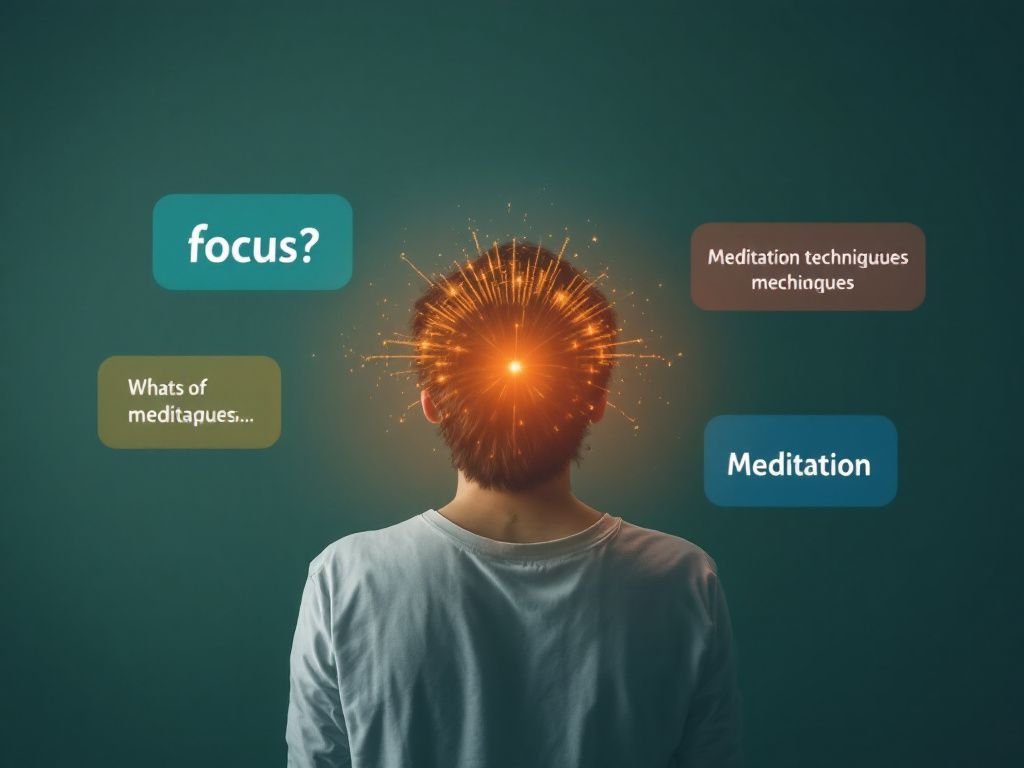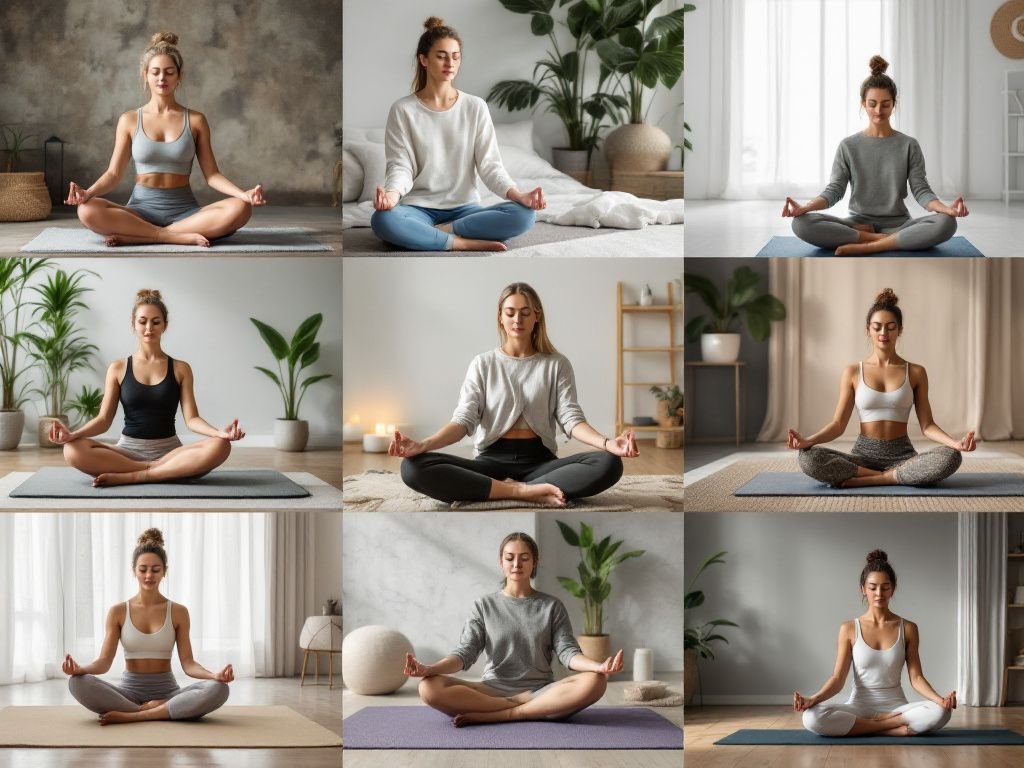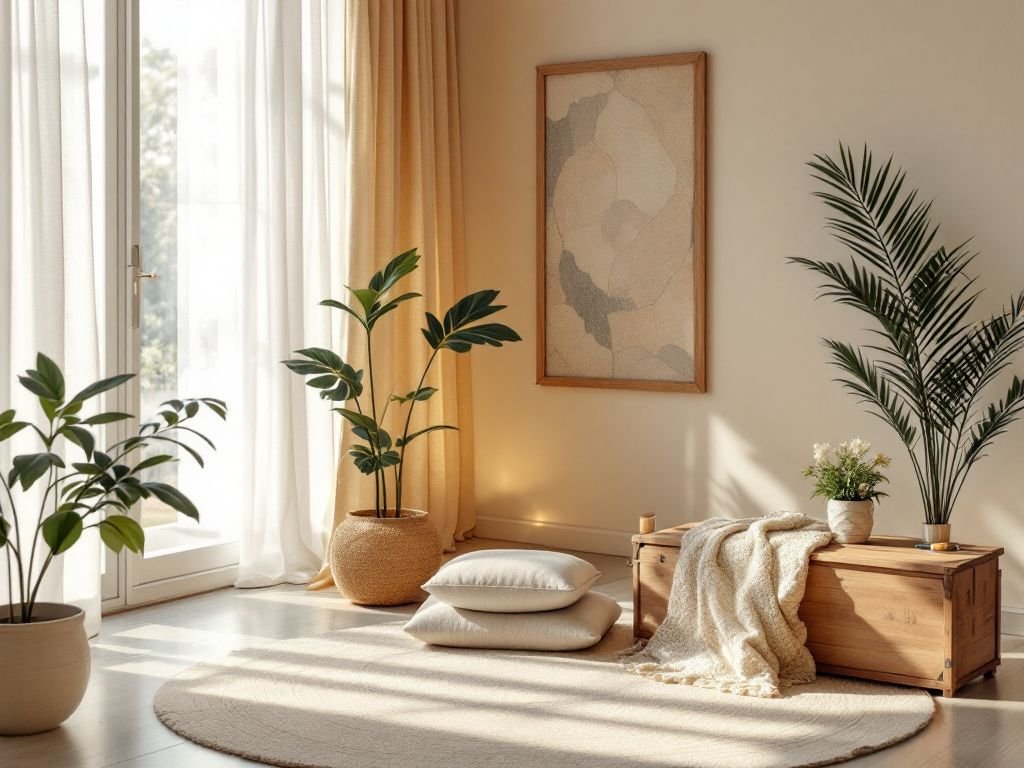In the ever-evolving meditation journey, the focus can transform one’s practice from a mere routine to a profound self-exploration. Meditation enthusiasts can significantly enhance their practice by honing in on essential focus areas. Cultivating mindfulness through consistent practice aids in transcending beyond the immediate benefits of meditation, fostering a deeper connection between mind and body. Incorporating Meditation music can amplify the experience, while guided meditation provides structure, especially valuable for beginners. Prioritizing mindfulness meditation allows individuals to stay present, facilitating relaxation and relieving stress. The benefits of meditation are vast, encompassing stress relief, improved focus, and spiritual growth. Leveraging meditation apps can introduce varied types of meditation, tailoring sessions to individual needs, whether for anxiety, sleep, or spirituality. Engaging in retreats can deepen this journey, offering immersive experiences that bolster one’s practice. By focusing on these facets, individuals can unlock the profound potential of meditation, embracing its full spectrum of transformative benefits.

Understanding the Purpose of Meditation
Many embark on the journey of meditation to seek clarity and inner peace, yet its purpose extends beyond these aspirations. The essence of meditation lies in cultivating a harmonious connection between mind and spirit. This practice encourages individuals to delve into their inner landscapes, fostering a profound sense of self-awareness and mindfulness. Meditation for beginners, including Guided meditation, serves as a gentle introduction to these transformative effects, nurturing a focus that enhances personal growth.
Insights from renowned meditation teacher, Jon Kabat-Zinn, suggest that meditation is not only about stress relief or relaxation but also about embracing the full spectrum of one’s emotions and existence. Incorporating mindfulness practices into daily life equips individuals with tools for anxiety management and better sleep, enriching their well-being. Meditation apps provide resources to explore various types of meditation, accommodating unique needs and preferences. Emphasizing meditation’s purpose as a journey of self-discovery encourages enthusiasts to remain committed to their practice, truly unlocking the benefits of meditation.

Choosing Your Focus in Meditation
Selecting a focus in meditation is a personal journey that guides practitioners to meaningful experiences. For beginners, starting with guided meditation can assist in developing a grounded routine. As one becomes attuned to Meditation and mindfulness, they discover the tranquility found in meditation for relaxation, easing them into the practice.
Cultivating this focus can involve using meditation music to enhance the ambiance and deepen concentration. Whether the intention is meditation for stress relief or addressing anxiety, finding a harmonious focus transforms the meditation experience into a soothing sanctuary.
Exploring various types of meditation helps practitioners identify the approach best suited to their needs. To truly comprehend the power of meditation, one must embrace a shift in mindset, viewing meditation not just as an isolated practice but as a holistic, life-integrating experience. This shift opens doors to the profound benefits of meditation.
Employing mindfulness practices in daily life, enhanced by meditation apps, nurtures meditation and spirituality. As individuals explore meditation retreats, they find opportunities to deepen their practice, choosing to focus on an evolving and enriching journey.

The Role of Intention in Meditation
Intention serves as the guiding compass in meditation, steering the practice towards specific outcomes or states of being. Setting an intention creates a foundation for Mindfulness meditation, clarifying what one hopes to achieve, be it relaxation, stress relief, or enhanced focus. For beginners, guided meditation sessions often emphasize the intention to anchor their practice, making it more purposeful and rewarding.
The current trends in meditation highlight a growing emphasis on intentionality, as more individuals seek tailored experiences through meditation apps and various types of meditation. This focus on personalization enables practitioners to address unique needs, whether it’s for sleep, managing anxiety, or exploring meditation and spirituality. As such, intention transforms meditation from a general practice into a deeply personal journey.
Intentions shape meditation experiences, offering practitioners a sense of purpose and direction. Mindfulness practices illuminated by clear intentions allow for greater immersion and effectiveness, whether they occur within the comforts of home or during meditation retreats. This intentional approach enriches the meditation process, unveiling the vast benefits it holds.

Exploring Different Meditation Techniques
There is a rich tapestry of meditation techniques that cater to a diverse array of preferences and goals. Exploring these techniques allows individuals to find methods aligned with their spiritual journeys and personal needs. Meditation for relaxation often employs meditation music to create a serene environment, while mindfulness meditation emphasizes present-moment awareness to foster mental clarity. Guided meditation offers structured support, particularly beneficial for beginners navigating their initial explorations.
Looking at meditation through the lens of ancient traditions and modern innovations, we can see that it offers a fusion of practices that transcend cultural boundaries. From transcendental meditation to loving-kindness meditation, each technique presents unique pathways to personal transformation. Meditation apps facilitate access to these varied types of meditation, enhancing the modern experience with ease and customization.
Delving into different meditation techniques opens doors to the multifaceted benefits of meditation. As individuals engage in these diverse practices, they often experience notable improvements in stress relief, focus, and spiritual connection. This journey into varied techniques provides the tools to address specific needs such as anxiety or sleep, reinforcing meditation as a versatile ally in enhancing well-being.

Creating a Supportive Meditation Environment
A supportive meditation environment plays a crucial role in enhancing the effectiveness of the practice. Establishing a tranquil space that invites relaxation and focus is essential, whether it’s through the use of dim lighting, comfortable seating, or the gentle embrace of meditation music. Such an environment creates a sanctuary that fosters the serenity needed for mindfulness meditation, helping individuals deepen their practice and attain clarity.
In the next few years, creating personalized meditation spaces is likely to become a widespread trend, as more individuals turn to tailored solutions to meet their unique spiritual needs. This prediction reflects a growing understanding of the role the environment plays in influencing one’s meditation experience. Meditation apps might evolve to offer virtual environments, adding another dimension to the modern practice.
For meditation beginners, having a dedicated space can anchor their routine, making Meditation for anxiety or stress relief more accessible and inviting. As enthusiasts explore different types of meditation, crafting a supportive environment not only enhances the benefits of meditation but also transforms a simple practice into a rejuvenating ritual.

Tracking Your Meditation Journey
Documenting one’s meditation journey is an invaluable tool for reflection and growth. By tracking progress, practitioners can celebrate their milestones and identify areas for improvement. Meditation apps facilitate this process, offering features to log sessions, evaluate Mindfulness practices, and set personal goals. This introspective practice not only enhances the meditation experience but also highlights the tangible benefits of meditation over time.
On one hand, Perspective A views tracking meditation as essential for maintaining motivation and structure in one’s practice. It offers accountability and visual proof of progress, which is particularly encouraging for meditation beginners. Meanwhile, Perspective B contends that focusing too much on progress can detract from the intuitive and spiritual aspects of meditation. This viewpoint emphasizes embracing meditation and mindfulness as a journey rather than a destination.
Reflecting on meditation through journaling or audio recordings allows practitioners to appreciate the transformative power of meditation retreats and various types of meditation. As individuals explore these tools, they cultivate a more profound connection with their inner selves, integrating meditation principles into daily life and capturing the essence of meditation and spirituality.

Frequently Asked Questions
What should beginners focus on in meditation?
Beginners should focus on building a consistent routine and understanding the basic principles of meditation, such as mindfulness and breath awareness. Starting with guided meditation can provide structure and confidence, helping newcomers ease into the practice. Over time, incorporating meditation music or mindfulness practices can enhance relaxation and focus.
How can mindfulness meditation aid in reducing stress?
Mindfulness meditation teaches individuals to stay present and acknowledge their thoughts without judgment, which can reduce stress levels by promoting a sense of calm and composure. By focusing on the present moment, practitioners are less likely to dwell on past stressors or future anxieties. Over time, this practice develops greater emotional resilience and clarity.
Are meditation apps effective in enhancing daily practice?
Meditation apps are effective tools for enhancing daily practice by offering a variety of guided sessions, reminders, and progress-tracking features. They provide interactive experiences that can be tailored to individual needs, whether focusing on stress relief, anxiety management, or Meditation for sleep. Apps make it convenient to access diverse types of meditation, supporting personalized and consistent routines.
How does meditation music complement the meditation experience?
Meditation music complements the meditation experience by creating an ambiance that encourages relaxation and focus. Soft, calming sounds can help settle the mind and deepen the meditative state by masking external distractions. Integrating music into one’s practice enhances the overall atmosphere, making meditation sessions more immersive and enjoyable.
What role do meditation retreats play in deepening one’s practice?
Meditation retreats offer immersive environments designed to deepen one’s practice by removing daily distractions and allowing for concentrated focus. These retreats often provide structured programs that incorporate different types of meditation, mindfulness practices, and spiritual teachings. Participants can experience significant personal growth, elevated mindfulness, and a more profound understanding of meditation and spirituality in these dedicated settings.


